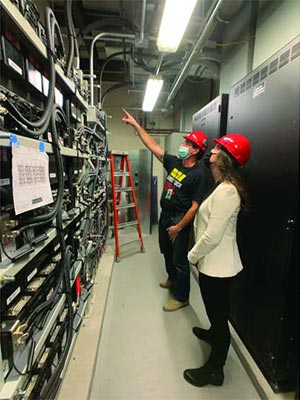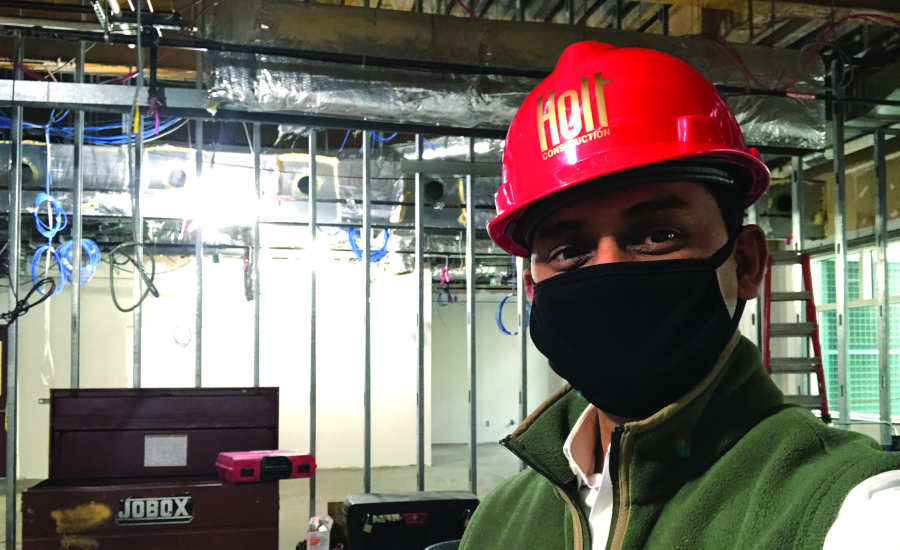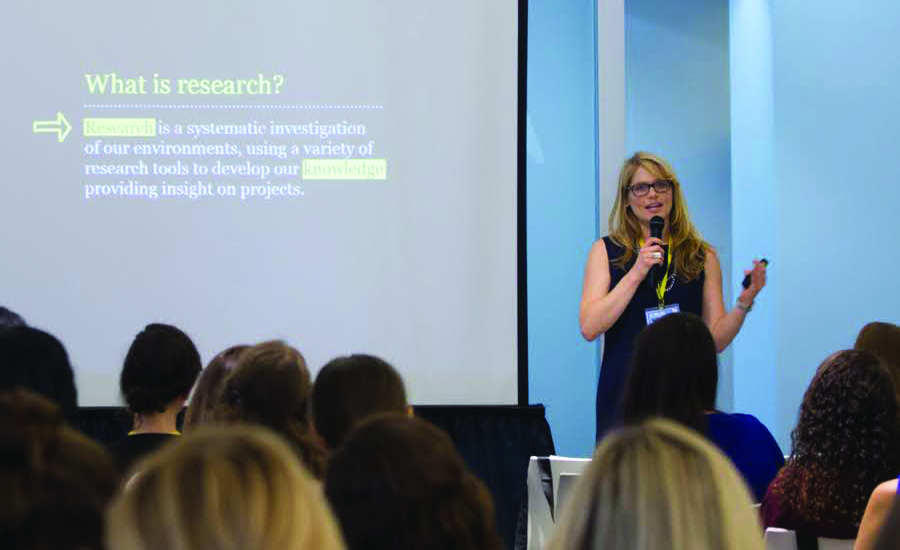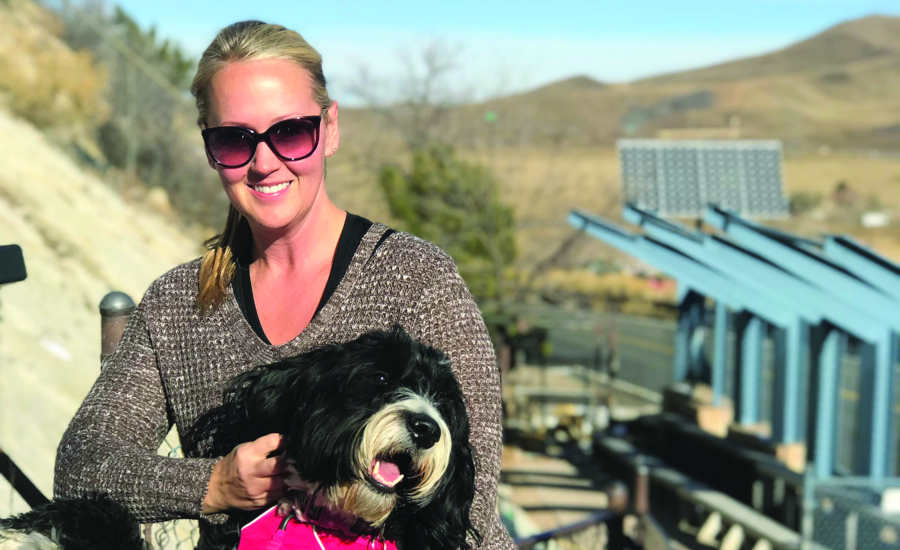Flexibility Vital in Comeback from COVID-19
With rising vaccination rates foreshadowing some semblance of pre-pandemic life, this year’s Top 20 believe lingering solutions and adaptations mandated by COVID-19 could bolster the industry. Variables remain, of course, such as what will post-virus jobsites look like and require?
One benefit of the remote world is increased stakeholder engagement during the public comment periods for projects. Online meetings enabled those with internet access to participate at unprecedented rates, a phenomenon Anderson, who serves on Washington state’s Public Works Board, confirms. Virtual public rooms for projects such as one developed by AECOM let people “navigate around, and it’s almost like they were attending an in-person stakeholder engagement public meeting,” O’Neill says. While such platforms are no substitute for meeting in person, O’Neill says they can continue to help reach people who “aren’t going to commit an hour or two to go into their community center to learn about [a] project.”
Moving meetings online has also given firms the chance to expand their global footprint without growing their carbon footprint, notes Anderson. Johnson says they can gain productivity in the process. “A lot of our projects might be three hours away. If I’m driving six hours for a one-hour meeting, it’s pointless.”
The pandemic also proves some employees are more productive working remotely while “others do need the support of the office,” Lockwood says. “I anticipate there being some sort of in-between, kind of a flexible approach to that, where folks can do both as they need.”
灵活的工作政策可能最终水平创der landscape at a time when a recent AIA report found women comprise 17% of principals or shareholders at firms nationwide, “which is pretty terrible considering that 45% of graduates from architecture programs are women,” Lockwood says.
Brownell adds that numerous studies show women endured the brunt of the pandemic by taking on the majority of unpaid home responsibilities. “This is kind of a make-or-break point where we have proven that people can be productive and they can work remotely,” she says.
However, working remotely has dramatically impacted onboarding and mentoring, says Blanton. He recently helped onboard a new grad virtually and says, as a management team, they had to develop an entire process around what it looked like to bring this person on board and “get them the training and the interaction that they need” compared to the process that they previously had.
Despite the clamor for flexibility, Roberts believes the “pendulum will swing back” to in-person meetings when clients eventually “put a premium” on a firm’s ability to physically staff meetings. “It’s going to take a couple of years before we find a magical balance,” he says.

Victoria Scala
In 2013, I shattered my knee. I was put on bed rest for weeks, which led to a year of physical therapy [during which I] completed my doctorate. That injury taught me quite a lot about patience, but most importantly that it’s up to you to choose to make the most of whatever situation life hands you.
This experience has shown that “we can change the working schedule a little bit and it does work, which is something we hadn’t done before in a more traditional environment,” Scala says.
One thing that everyone agreed on is that some of the technological efficiencies necessitated by the pandemic will continue. In addition to Zoom, Microsoft Teams and cloud-based software solutions, programs such as Slack, Mentimeter and Miro are proving invaluable to improving communication among teams and clients.
Prestenbach says her firm’s “upfront visioning and discovery process” with clients has benefited from Mentimeter, an online tool that allows her clients to anonymously answer her questions in real time during a remote conference. “Typically, we would do that in person and oftentimes people are too embarrassed to respond or speak up or voice their opinion,” she says.
Internally, Slack has allowed some teams to avoid getting buried by email chains. Slack resembles an instant messenger where users can create team channels and tasks, allowing for conversations and status updates otherwise sent via emails. Meanwhile, Miro lets teams share graphics or drawings “and markup plans or designs and get real time feedback,” McCray says.
The pandemic appears to have “spiked” the amount of software and new platforms being released, which is “patching a hole in the industry that has always been there,” notes Atul Paralkar, director of controls at Holt Construction Corp. in Pearl River, N.Y. As the construction industry is traditionally a “laggard at adopting” enterprise software and field technologies, he hopes the pandemic experience will force better collection of information “and then transfer [of] data.” Paralkar believes that the benefits of these technologies—and the rise in productivity—will incentivize corporations to continue to allow remote work despite its challenges.
“We’ve sort of been forced toward this type of new technology growth and adaption,” so the benefits will come with ensuring the industry doesn’t “fall back to old times,” says Vande Boom.
与此同时,筛选过程和h的未来ealth requirements on jobsites remains an open question. Scala questions if vaccinations will be required to enter jobsites. “Just staying on top of those rulings and those guidelines is key and important to keeping everyone safe,” she says. The challenge is going to be determining the rules of engagement for clients, owners and investors so that they are comfortable with active construction while their businesses are operating concurrently, Lewis adds.
Realizing that “protection against COVID is a safety issue” dictates that “it has to be part of your contracts,” Paralkar says. “Our [industry’s] expectation—which has been for safety to be paramount—will reflect in our response to how we deal with COVID moving forward.”
Backstory: Powering Through the Pandemic

Atul Paralkar
Disruption is an opportunity to do extraordinary things. Knowing how fortunate I was to be able to make a positive impact during an evidently difficult market phase meant that we had to be even more focused on delivering results for our clients and, in turn, for our firm.

Erin Peavey
I am forever grateful for my amazing friends, family and colleagues who helped me survive and even grow throughout this pandemic. I have felt so supported by the amazing friends and team members at HKS who have stepped in to offer a helping hand. I will never forget their generosity.

Lauren Amber Prestenbach
Here in the Houston market, we’ve got a lot of opportunity to have a collective group of many different types of people from all different backgrounds. We’re fortunate in that realm, but we want to make sure that anyone in any part of our organization feels included.
_ENRready.jpg)
Kyle Roberts
Through one of the most challenging years in our lives, our team was able to strengthen our relationships with one another and achieve a year of great profitability. The challenges we faced made us stronger and better positioned to support our clients, projects and one another.























